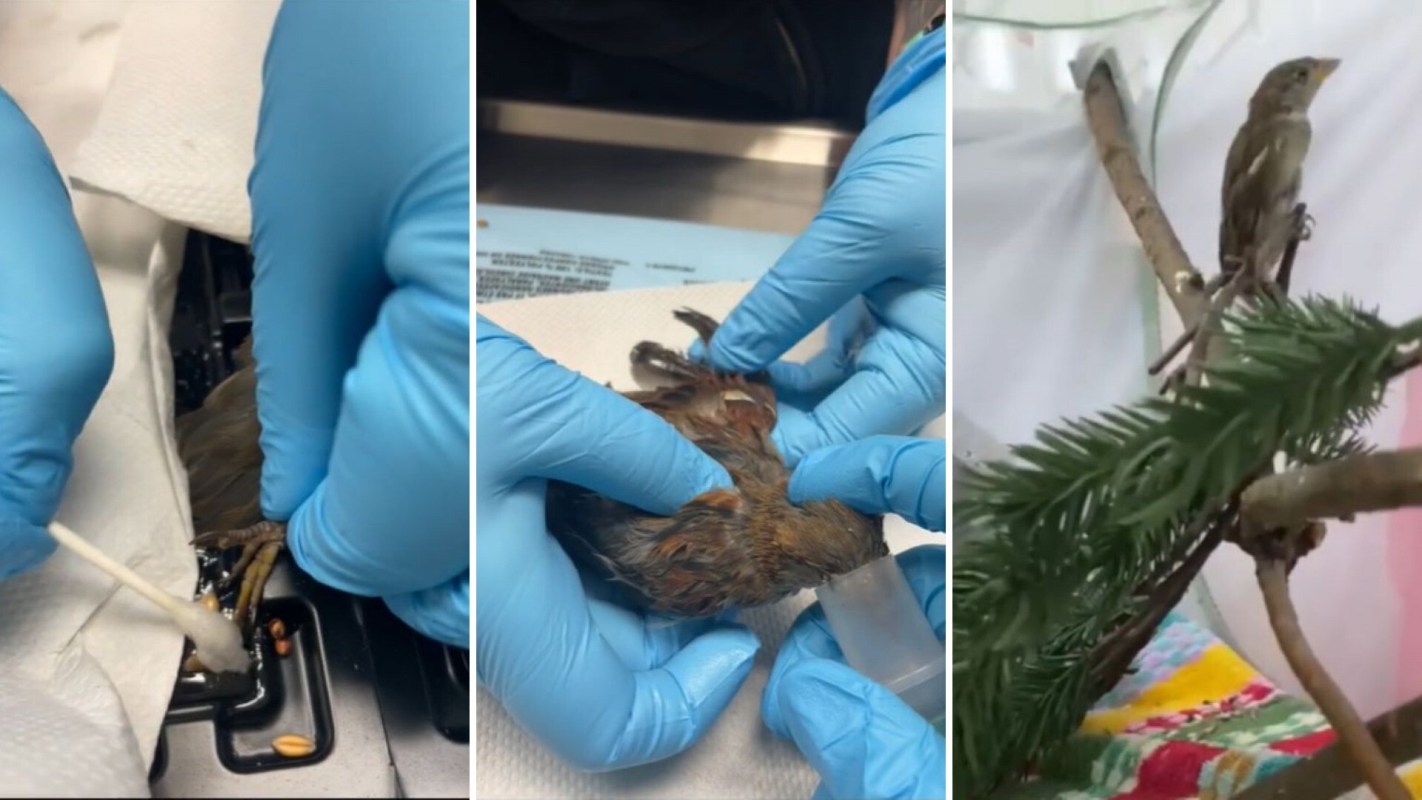A disturbing video capturing the rescue of a house sparrow from a glue trap has sparked a discussion online about the humane treatment of wildlife and the dangers of certain pest control methods.
In an alarming display of the hazards posed by glue traps, a recent video featuring the rescue of a house sparrow has drawn attention to the plight of wildlife caught in these devices. The video posted by WILDNorth (@Wild North Lab), a wildlife care team, shows the delicate process of freeing the bird from the sticky trap.
@wildnorthab This poor House Sparrow was admitted in a sticky sitaution! We were thankful we were able to help him! #housesparrow #gluetrap #wildliferehabilitation #wildlifemedicine #wildliferehab #wildnorthab #wildnorth #wildlife ♬ Blinding Lights - Instrumental - The Weeknd
The video opens with the stressed and immobilized sparrow stuck firmly to a glue trap. The team swiftly takes action, sedating the bird and employing a special oil to free each feather and body part. Removing the glue and oil residue is intricate and time-consuming. The release of the sparrow back into the wild marked the end of the bird's harrowing ordeal.
Social media users expressed a range of emotions, from outrage to relief. One commenter expressed concern for the bird, saying, "Why would people do this?!" while another shared their gratitude for the care team, "Poor little guy. Good thing you guys were there for him!"
Glue traps, often used for pest control, pose a significant threat to targeted pests and unsuspecting wildlife. These traps, designed to immobilize creatures that come into contact with their sticky surface, can lead to prolonged suffering. Animals, in a desperate bid for freedom, may resort to extreme measures, including self-mutilation. The indiscriminate nature of these traps means that they can ensnare unintended victims, like the house sparrow in this video.
Awareness of the cruelty and inefficiency of glue traps is leading to a shift toward humane pest control methods. Natural remedies can effectively deter pests without causing harm to wildlife.
For instance, herb bags, made with ingredients like red pepper flakes, cloves, and cinnamon, repel mice with their strong scent. Similarly, Mosquito Dunks, a nontoxic product, can control mosquito populations by targeting only mosquito larvae without harming other wildlife or the environment. These alternatives emphasize coexistence and respect for all living creatures.
Join our free newsletter for cool news and cool tips that make it easy to help yourself while helping the planet.









